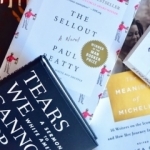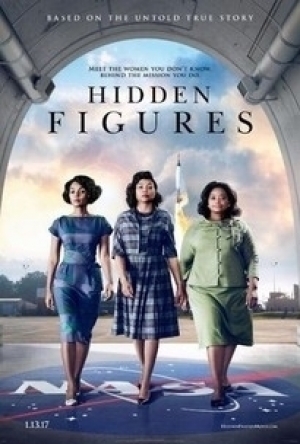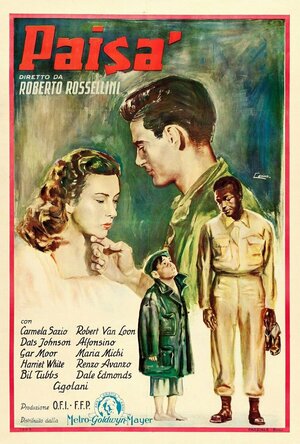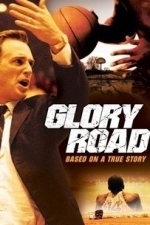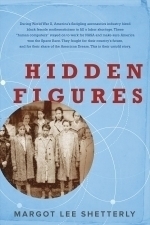Suswatibasu (1703 KP) shared Books Editor 's list
Oct 2, 2017
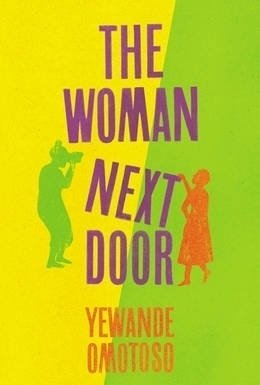
The Woman Next Door
Book
Hortensia James and Marion Agostino are neighbours. One is black, one white. Both are successful...
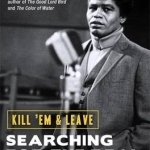
Kill 'Em and Leave: Searching for the Real James Brown
Book
The definitive biography of the soul legend James Brown by National Book Award-winning novelist...
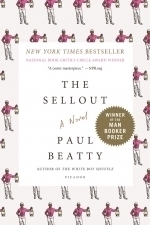
The Sellout
Book
'Outrageous, hilarious and profound.' Simon Schama, Financial Times 'The longer you stare at...
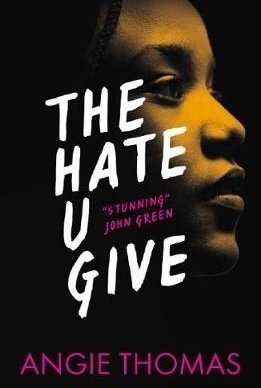
The Hate u Give
Book
A powerful and brave YA novel about what prejudice looks like in the 21st century. Sixteen-year-old...
Race police shooting black lives matter prejudice witness murder
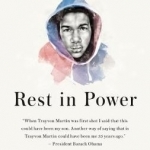
Rest in Power: The Enduring Life of Trayvon Martin
Tracy Martin and Sybrina Fulton
Book
On February 26th 2012 seventeen-year-old Trayvon Martin was walking home with a bag of Skittles and...
and 5 other items
Lindsay (1793 KP) rated The Journal Of Joshua Loper, A Black Cowboy (My Name Is America) in Books
Feb 15, 2018
It a good read. Though this is mostly about the time in American History. It tells you more about being Black cowboy and on the trail of "The Chisholm Trail in 1871."
If you enjoy history this is good. This is told though the boys prospective as in Dear American is told though a girl prospective. It good for children to learn about our history at that time. Learn about Cattle drives as well as what it was like being African American in the 1871.
Lindsay (1793 KP) rated The Journal Of Biddy Owens, Birmingham, Alabama, 1948 in Books
Feb 15, 2018
Around this time in 1948, Baseball was starting to ingrates with African American. It was when Jackie Robinson was brought to place for the Major Leagues though though out the book. People were still think that there were still a few segregated seating in ballparks. They were still signs for blacks and White signs stating around.
Though this does change though you understand what it like at that time along with baseball changing and other things about american history. You do learn about the different thing though Ameican History and good for young children and adult to understand and learn about that time.
Jessi Bone (48 KP) rated From Auction Block to Glory: The African American Experience in Books
Mar 18, 2019
From the Auction Block to Glory by Phillip Thomas Tucker Ph.D. is 128 pages long and looks at the African American experience from slavery to emancipation. I found the book very insightful as it looked at the side of slavery not just from the slave's point of view but from the perspective of the Southern owners and the North's needs end the slavery. The painting, photographs, and stretches bring the past to life and allow additional visual confirmation of what the words were saying and gives you a rare and unique view of the world that they lived in. I found the book very informative and an enjoyable read. Dr. Tucker writing style is in a communicative style similar to a conversation from him to you which makes you want to finish the book in one sitting.
Gareth von Kallenbach (980 KP) rated Hidden Figures (2016) in Movies
Jul 12, 2019
Hidden Figures discusses the contributions of African-American women at NASA — Katherine Johnson (Taraji P. Henson), Dorothy Vaughan (Octavia Spencer) and Mary Jackson (Janelle Monáe). The film is enlightening and allows for audiences to gain a greater understanding of women and women of color in ensuring the success of the American Space program. The film does not exaggerate circumstances to a point where it is difficult to believe. What is difficult to believe for audiences in using this film to look at the past is that we have waited so long to recognize and honor these heroes. Without their contributions, the United States may have never made it to the moon.
The film offers adults and youth audiences an honest look into what these women faced in the forms of racism and sexism. There is no brutality of racism or violence demonstrated, but the spectre of it lingers over the film and reminds the viewer of the hardships that these women faced. They had the minds to carry out their tasks, but they did not have the right gender or color to be taken seriously, at first. The film is empowering and allows for young girls, despite race, to see that science and math are not fields that are not limited to men. Appropriate representation allows for more depth to history and the role that people of different walks, faiths, and nationalities have played in society. Hidden Figures is a timely film that allows for greater representation and may push filmmakers and audiences to discover more hidden figures in history.
Jonas Carpignano recommended Paisan (Paisà) (1948) in Movies (curated)
Chris Hooker (419 KP) rated Reparation in Books
Jan 12, 2018
Now it is 2006 and Katie has returned home to help take care of her mom. By chance she is reunited with Delia. Katie is determined to make amends and get justice for her friend.
[Rodgers] does an amazing job of portraying the emotions of the characters. The story flows well and the flashbacks fill in the history giving the reader the perspective of the narrator(Katie). I also found the mention of Juneteenth interesting because not many people are aware that this is the Independence Day for the African American community. The historic perspective fit well in with the modern day mystery.
Gareth von Kallenbach (980 KP) rated Glory Road (2006) in Movies
Aug 14, 2019
In the new film Glory Road Josh Lucas stars as Don Haskins, a girls Basketball coach who is given the chance to coach a Division 1 team at Texas Western in 1966.
The small school cannot offer the coach much in the way of amenities as Don and his family are required to live in the student’s dorm. Since his dreams of playing pro ball came to a halt after a knee injury, Haskins looks at his job as a chance for him to make a name for himself.
The task will be daunting as Texas Western is a very small school that puts the majority of its athletic budget into the football program leaving next to no money for the gym, new equipment, and recruiting of players.
After a frustrating attempt to recruit players at a local invitational, Haskins sets his sites on a young African American player who while big on attitude, is also big on potential.
With scholarships to offer, Haskins and his staff travel the nation and shock the conservative school by offering scholarships to 8 African American players. In a day and age when teams had at most 1-2 African American players; many of whom did not see much playing time; this is a risky move for the coach.
Undaunted, the coach begins the process of integrating his new players with his current players all of whom are Caucasian, which leads to some tension over starting rights, abilities, and styles.
Haskins is a no nonsense coach who is very strict in regards to grades, effort in practice, and above all avoiding late nights and carousing while the season is underway. Despite this, many players decide to test the will of the coach which raises issues of commitment to the team and discipline, all of which are standard staples of sports films.
When the season starts, a funny thing happens. Not only is the coach playing his African American players in a heavy rotation, but little Texas Western is winning their games and beating some of the more noted teams in the country in the process.
As their notoriety increases so does the amount of hostility directed towards the team from racially incensed fans who do not like the make up of the team and especially hate their success.
Despite this, the team finds itself in the National Championship game against powerful Kentucky coached by the legendary Adolph Rupp (Jon Voight), where Haskins makes history by starting and playing only his African American players which is a first in NCAA finals history.
While the marketing and trailers for the film certainly do not hesitate from telling you most of the above and underscoring that the team ends up in the finals and that the film is based on a true story, it is not about the final results, it is about the journey the team took getting there.
Producer Jerry Bruckheimer is a master at knowing what the fans want and director James Gartner gives viewers a by the number film that delivers the goods. Yes, the film heavily uses all the sporting clichés from the ailing player, the us against the world mentality, the team of misfits, and so on all of which combines to offer little cinematic tension as it is very clear early on and from the ads where this film will end up.
Despite tipping their hand early and throughout, the filmmakers have decided not to rock the boat and have stuck with a tried and true formula that results with a winning albeit very predictable film.
Lucas does a solid job in the roll and makes the best of the material he has to work with. The game sequences are well managed and rousing which had members of my preview audience cheering.
While it offers little originality, Glory Road is a lot of fun, and despite mining every cliché in the book, is an entertaining time at the movies.
LilyLovesIndie (123 KP) rated By the Rivers of Water: A Nineteenth-Century Atlantic Odyssey in Books
Nov 5, 2018
I was expecting a more fictional style of writing, and was pleasantly surprised to see that it is written in more of a recount style of the lives of the main family, namely Leighton Wilson. The detail and attention paid to the research shone through in every page and was highly informative to read. However, at times this book did have a tendency to drag, and I suspect it is due to the overwhelming attention to small detail. Fabulous if you're using the book as a research project, not so if you're reading out of curiosity into this era of history. In addition, it also occasionally lacked the fine balance between informative on the religious aspect of the missions and preaching through the pages. As a not so religious person, this did become annoying at times, but I could understand why Clarke had this tone in the book.
Overall, an enjoyable, if not very long, book that was incredibly informative and rather enjoyable. The addition of the photographs and personal snippets from letters added a very personal and enjoyable aspect to the tale of the Wilson's.
Suswatibasu (1703 KP) rated Hidden Figures: The Untold Story of the African-American Women Who Helped Win the Space Race in Books
Oct 27, 2017 (Updated Oct 27, 2017)
Before John Glenn made it to space, a group of professionals worked as ‘Human Computers’, calculating the flight paths by hand that would enable these historic achievements. Among these were a coterie of bright, talented African-American women. Forget Silicon Valley's misogynistic climate - women were the original engineers and mathematicians.
The book is awash with interesting stories of extraordinary people working in a time of segregation and all pervasive racism. It has multiple layers that delve into each character, and gives a comprehensive context into these women's lives. It basically fills in the gaps of the film, but also changes the timeline considerably as Katherine Johnson was much younger than her colleague Dorothy Vaughan. Nevertheless, an extraordinary read and a great tribute to these invisible women.
